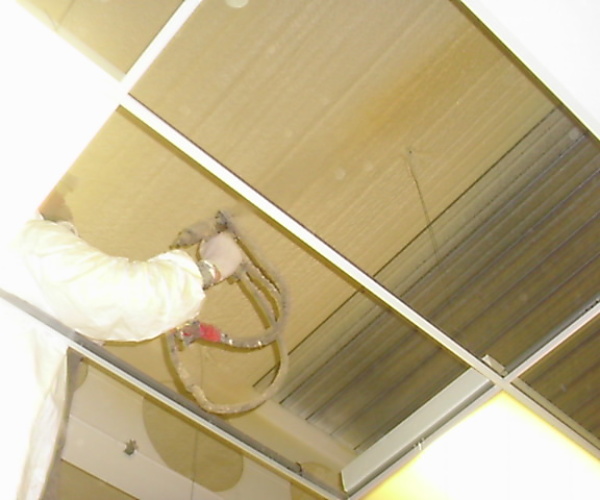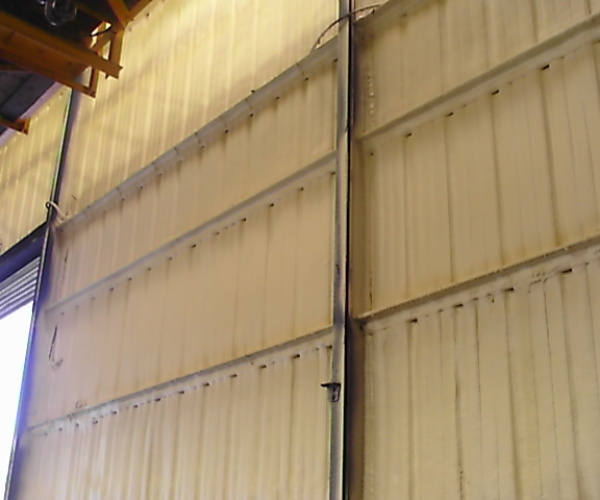Condensation in commercial buildings can prove not only an irritant, it can lead to huge financial implications as well. Where condensation forms on roofs and walls in colder conditions, the drips can lead to damage of internal finishes, machinery or materials and also to Health and Safety dangers within the workplace. Where condensation is forming on ‘single skin’ roofs or walls, or on metal joists, purlins or other supports, EduFoam can be used to eliminate these problems quickly and easily.
In the winter months, particularly on clear nights, the temperature on the surface of a roof can drop to significantly lower than the ambient temperature. Where roof structures are made up of ‘single skin’ materials, specifically steel, tin, aluminium, asbestos or fibre cement, the temperature on the internal surface of the roof is virtually the same as the temperature on the external surface as there is no thermal resistance between them. Where this happens, any moisture in the internal atmosphere can condense on the colder surface leading to issues of condensation droplets forming. Many building occupants are surprised to find condensation problems occurring within their buildings, especially when the buildings are empty or are only used to store boxes or similar. However, condensation problems such as these can exist in virtually any building with a ‘single skin’ structure, i.e where the roofs or walls consist of only one layer rather than having insulation incorporated within them.
Installing EduFoam sprayed insulation to the underside of ‘single skin’ roofs and/or walls can eliminate any condensation problems, as well as increasing the level of thermal insulation in the building as a whole. By applying as little as 15 to 20mm depth of EduFoam — depending on the type of structure, internal conditions, external temperatures and other conditions, even ‘single skin’ structures can be condensation free even in harsh winter frosts. As EduFoam is spray applied directly to the surface of the roof, as well as to any supporting metal-work which could act as a thermal bridge, the insulation will form a ‘composite’ structure which keeps the internal surface temperature above the ‘dewpoint’ of the internal atmosphere.



